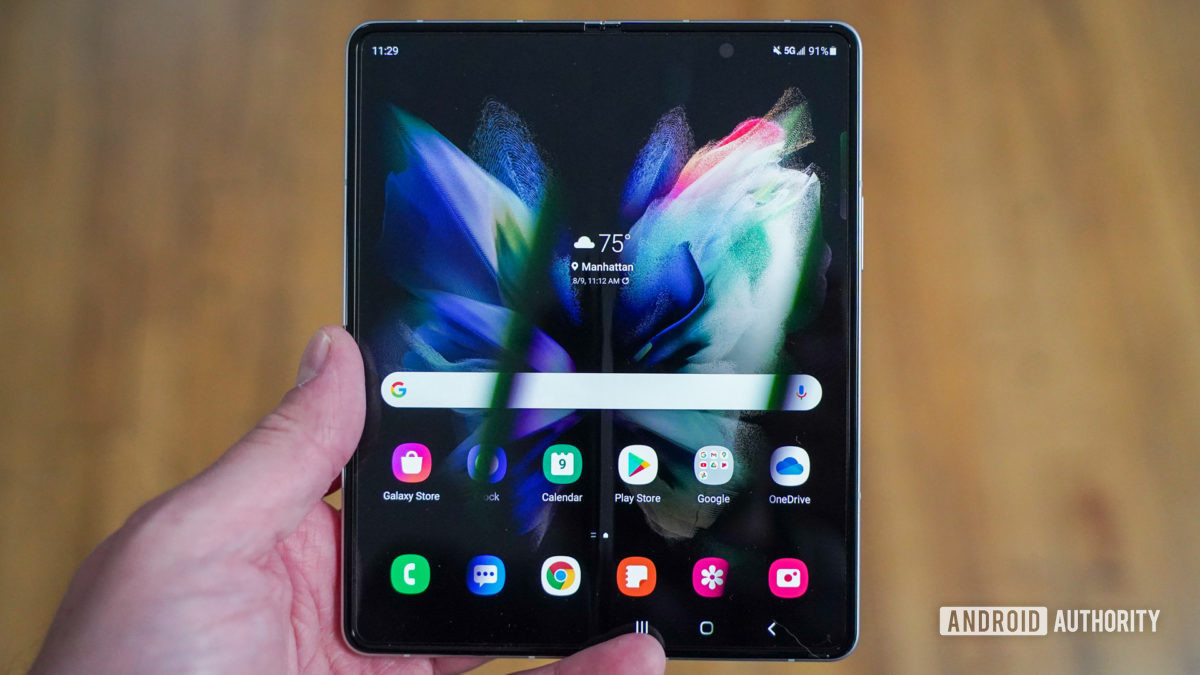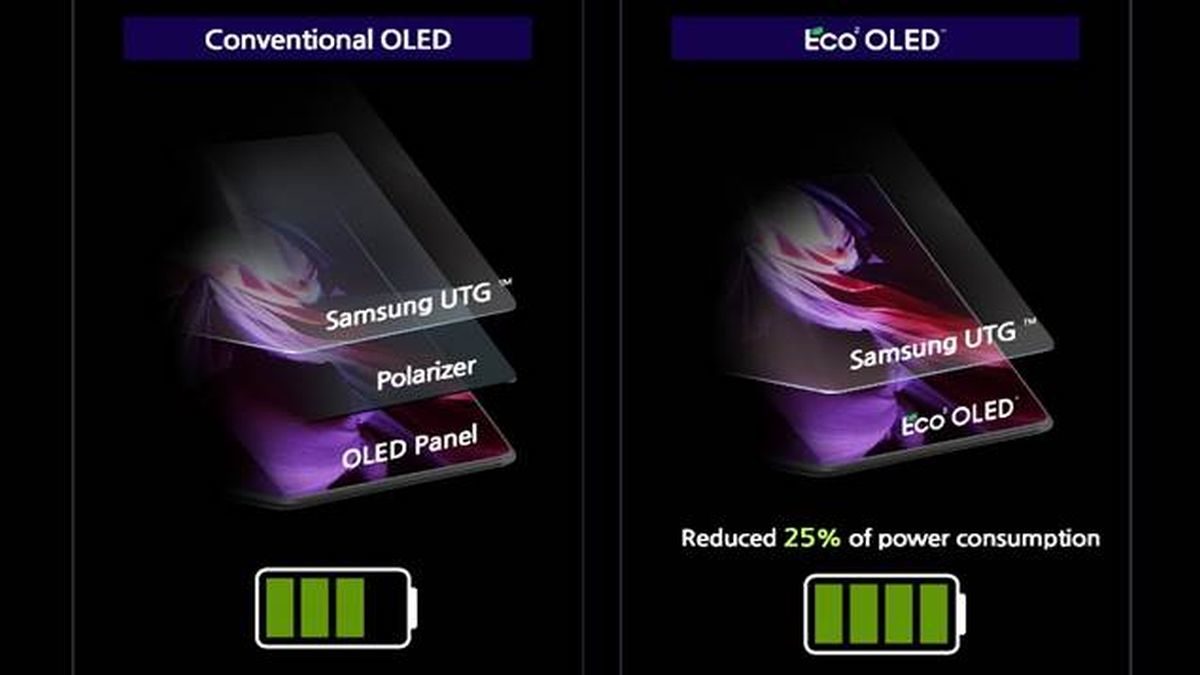
- Samsung has announced a new smartphone display technology, the Eco 2 OLED.
- It’s being used on the just-announced Samsung Galaxy Z Fold 3 foldable phone.
- The new display will help reduce power usage on the phone, among other benefits.
The Samsung Galaxy Z Fold 3 was announced just a few days ago, but the next-generation foldable phone has even more new technology than we first thought. Today, Samsung Display announced that the phone is the first to use its new Eco 2 OLED technology, which offers several benefits for the Galaxy Z Fold 3. Eco stands for Efficient power Consumption + Eco-friendly Component, for those keeping score at home.
See also: The best foldable phones you can get
In a press release, Samsung Display stated that the Eco 2 OLED eliminates the need for a plastic polarizer layer. Normally, such a layer is used to help phones reflect external light. However, that same layer also reduces the transmittance rate of light from a phone by over 50%.
The new Eco 2 OLED display has what the company calls its own “innovative pixel structure.” This allows the display to improve its transmittance rate on the Galaxy Z Fold 3 by 33%. At the same time, because the phone doesn’t transmit as much light, its battery life is improved by up to 25% compared to using a normal OLED display.

The new display technology also improves the performance of the Galaxy Z Fold 3’s 4MP under-display camera (UDC). Getting rid of the polarizer layer allows the UDC to be exposed to more light. The result is that such a camera can be put in a foldable phone so that, when not in use, owners of the phone can get a true full-screen media experience.
Finally, because the Eco 2 OLED display doesn’t have that plastic polarizer layer, phones that use the tech can cut down on their overall plastic use for a somewhat better phone in terms of its environmental impact.
Samsung says the Eco 2 OLED display has been patented in seven countries, including the US. It’s safe to say that we can expect more Samsung smartphones to use this display tech in the future.